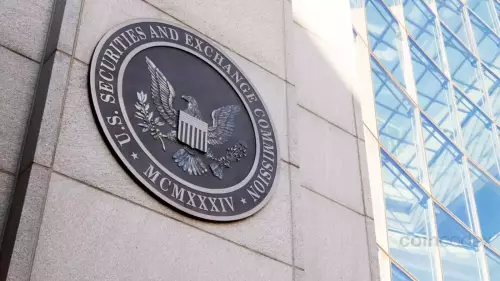With digital fraud losses surging, India's law enforcement is taking proactive measures, including establishing specialized crypto cells, to combat the rise in cryptocurrency-related crimes.

Digital Crime in India: Crypto Cell Steps Up Fight Against Rising Scams
India's digital landscape is witnessing a surge in cryptocurrency-related crimes, prompting law enforcement to take decisive action. The establishment of specialized crypto cells marks a significant step in combating these advanced cybercriminal activities.
The Rise of Crypto Crime in India
Digital currency crimes have surged globally, with India experiencing a significant uptick. Between April 2024 and January 2025, India reported over ₹4,245 crore in digital financial frauds across 2.4 million incidents—a 67% increase from the previous year. This alarming trend has spurred authorities to enhance their capabilities in tackling crypto-related offenses.
Thane Police Leads the Way with Crypto Investigation Cell
On September 27, 2025, Thane police (Mumbai Metropolitan Region) established a special Cryptocurrency Investigation Cell to reduce the increasing cybercrime of digital currencies. This cell aims to trace anonymous cryptocurrency transactions and combat sophisticated schemes involving spoofed transactions and layered bank accounts. The Thane project sets a precedent for other areas facing rising digital financial risks.
Notable Crypto Crime Cases in India
Several high-profile cases highlight the severity of the situation:
- A Delhi police case involving the arrest of Naresh Kumar for a ₹34 lakh cryptocurrency fraud under the name Coin-Ex Crypto Trading.
- Victims lured via social media into manipulated trading groups promising high returns, with funds being layered through multiple bank accounts.
- Major hacks, including the $44 million CoinDCX hack, WazirX losses of 230 million, and the massive $1.5 billion ByBit hack.
- ED filing a case against Raj Kundra for a Rs 150 crore crypto fraud.
- A "Digital Arrest" scam in Andhra Pradesh defrauding a retired doctor of ₹1.1 crore, with similar scams totaling ₹14 crore across eight states.
Government Initiatives to Combat Crypto Crime
The Indian government has enhanced crypto crime prevention through various initiatives:
- An MoU between DoT and FIU-IND to exchange real-time fraud risk information, identifying suspicious mobile numbers used in cybercrime.
- Blocking over 2.84 crore fraudulent connections, saving ₹140 crore in digital fraud.
- Mandatory cybersecurity audits of all cryptocurrency exchanges.
- Two-factor authentication for digital payment transactions mandated by the Reserve Bank of India, starting April 1, 2026.
Personal Thoughts
The proactive steps taken by Indian law enforcement and regulatory bodies are commendable. However, continuous adaptation and innovation are crucial to stay ahead of increasingly sophisticated cybercriminals. The collaboration between government agencies, cryptocurrency exchanges, and the public is essential in creating a secure digital ecosystem.
Conclusion
As cryptocurrency crimes continue to evolve, India's commitment to securing its digital resources and protecting its citizens is evident. With organized research, sophisticated analytics, and stringent policies, the fight against advanced cyber attacks is gaining momentum. It's a wild west out there in the crypto world, but India's showing it's ready to wrangle those digital bandits!
Disclaimer:info@kdj.com
The information provided is not trading advice. kdj.com does not assume any responsibility for any investments made based on the information provided in this article. Cryptocurrencies are highly volatile and it is highly recommended that you invest with caution after thorough research!
If you believe that the content used on this website infringes your copyright, please contact us immediately (info@kdj.com) and we will delete it promptly.














































































